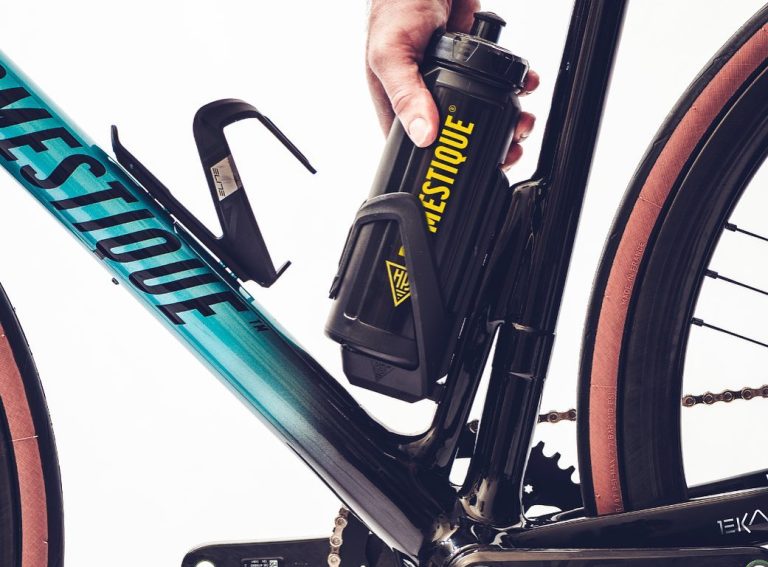There are currently more than half a million shared e-scooters across Europe, but e-bikes also play a role in the micromobility ecosystem.
E-bikes are an obvious innovation – pedalling is still required, but battery power makes it easier and can help riders while going up hills. The seat means that they are also more comfortable for longer journeys when compared to e-scooters.
Currently, e-bikes (as long as they are speed-capped) are regulated the same way as bicycles in most countries in Europe, which has allowed for the almost seamless move from bikeshare schemes to rental e-bike schemes, with operators and city halls often willing to put in the extra investment.
In some countries, such as the UK, Ireland and the Netherlands, where e-scooters are heavily restricted or banned, e-bikes have had a clearer run.
Shared e-bike schemes are available from three distinct groups of providers:
Shared bicycle platforms that have introduced e-bikes to their fleets, alongside or replacing their manual bikes.
- Nextbike, one of the world’s largest bikeshare companies, has gradually introduced electric bicycles into some of its fleets, in many countries.
- Smoove, via the Smovengo consortium, launched a shared scheme in Paris in 2018 to replace the famous Velib system there with new bicycles and e-bikes.
- JCDecaux, for long a major operator of shared bicycle schemes in Europe, has replaced its Luxembourg fleet of manual bicycles with electric ones, overnight, and introduced some electric bikes into its Brussels fleet.
- Lime is a rare example of a company that has large e-bike fleets and large e-scooter fleets, often in the same city, most notably in Paris where they have over 2,000 pedelecs and 1,000 e-scooters, and Rome where they have around 3,000 of each. Zag Daily is not aware of another operator that provides e-bikes and e-scooters in similar, large numbers in the same city.
- Many other manual bikeshare platforms have gradually introduced electric options into their operations including PBSC, Beryl, RideMovi (which is Mobike reborn and advanced, in Italy), Donkey Republic and Pony.
Dedicated shared e-bike providers – these are relatively rare.
- Bewegen has always been a shared e-bike provider and supplies e-bikes to various fleets in Europe, including in Portugal and Estonia.
- Freebike – these highly customisable e-bikes are now in various locations including Dublin, where e-scooters are not yet allowed, as well as cities in Poland, Finland, the UK and France.
- HumanForest has very recently relaunched in central London with a new e-bike model, following issues with its previous supplier.
Shared e-scooter operators introducing e-bikes alongside their scooter fleets or as the continuation of service following the withdrawal of scooters for regulatory reasons.
- TIER has well over 100,000 e-scooters for hire in Europe, and indeed is the largest e-scooter operator on the continent. It operates some e-bikes – though this is less than 1,000 in total – in several towns and cities including York (UK), St Gallen (Switzerland) and Baerum (Norway). In most of these places, they also operate a much larger e-scooter fleet, but they do have a small fleet of electric bicycles in Eindhoven and Utrecht (Netherlands), a country where e-scooters are currently banned.
- Voi is also very much an e-scooter company, with nearly 100,000 present in Europe. In the UK it also launched a number of small e-bike fleets, including in Peterborough (where there are no e-scooters) and Cambridge. Like TIER, e-bikes form less than one per cent of its European vehicle fleet.
- Bolt, a major multi-mobility service provider (from rideshare to e-scooters) has launched an e-bike fleet in Lisbon (Portugal) but, where it does have micromobility, the option is almost always just e-scooters.
- Dott, Ginger and Zwings have all recently announced that they will be introducing e-bikes schemes, either integrating with e-scooter fleets or replacing them to provide ongoing micromobility services after e-scooter licences have expired.
The direction of travel for shared e-bikes in Europe is not clear. Shared e-scooters continue to dominate the scene with numbers rapidly increasing across many markets. It appears that this mode is more profitable for the operators and attractive for many users at this stage.
But e-bikes can operate where e-scooters may not. They have a place in Europe, but it may be a smaller place now, should e-scooters prove they are here for the long term.



